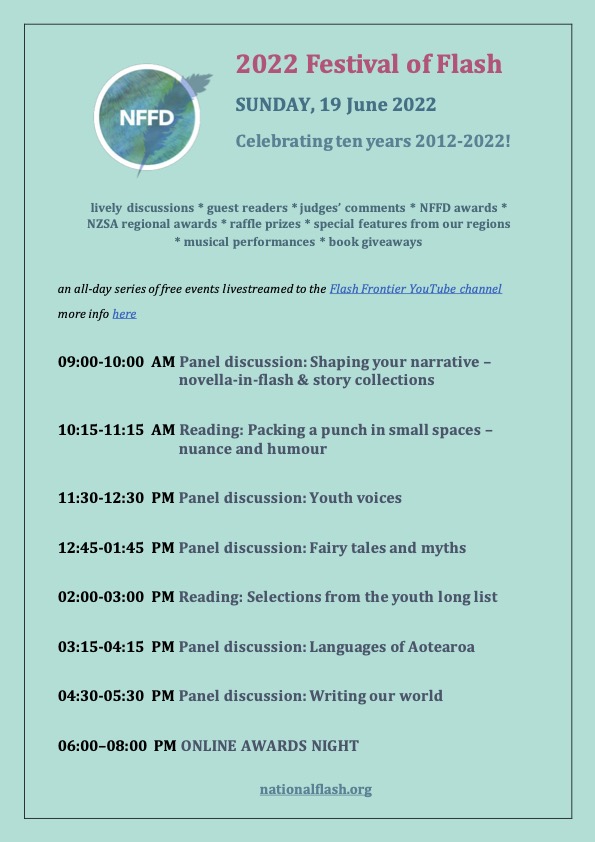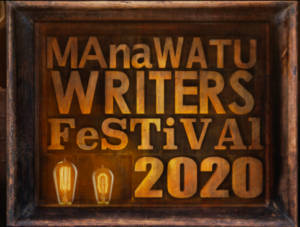I’m taking part in the Festival of Flash to celebrate 10 years of Flash Frontier magazine this Sunday, 19 June. There’s a lot going on – check it all out below.

| National Flash Fiction Day 2022 – an all-day Festival of Flash, closing with the awards night A special day and evening celebrating ten years 2012-2022 Info and details here. Please join us at the Flash Frontier YouTube channel for our celebration of flash fiction in Aotearoa New Zealand. Sunday 19 June 2022 Featuring: Special guests, musical interludes, new books, a celebration of languages of Aotearoa and features from NFFD’s centres Youth stories & awards with Jack Remiel Cottrell Adult stories & awards with Anne Kennedy and Kiri Piahana-Wong NZ Society of Authors Regional awards With special guests, raffle prizes and more! Please check out our panels and readings and then tune in for our national awards night. Tune in here: Flash Frontier YouTube channel Find this year’s Short List at the NFFD site, here, with the youth Short List at fingers comma toes. Congratulations, all! A list of the festival events… SUNDAY, 19 June 2022 Celebrating ten years 2012-2022! lively discussions * guest readers * judges’ comments * NFFD awards * NZSA regional awards * raffle prizes * special features from our regions * musical performances * book giveaways an all-day series of free events livestreamed to the Flash Frontier YouTube channel more info here 09:00-10:00 AM Panel discussion: Shaping your narrative –novella-in-flash & story collections 10:15-11:15 AM Reading: Packing a punch in small spaces – nuance and humour 11:30-12:30 PM Panel discussion: Youth voices 12:45-01:45 PM Panel discussion: Fairy tales and myths 02:00-03:00 PM Reading: Selections from the youth long list 03:15-04:15 PM Panel discussion: Languages of Aotearoa 04:30-05:30 PM Panel discussion: Writing our world 06:00-08:00 PM ONLINE AWARDS NIGHT Please go to the website for information about festival topics, participants, links, etc. nationalflash.org |
| Ngā mihi, Michelle Elvy James Norcliffe Gail Ingram Rachel Smith Vaughan Rapatahana www.flash-frontier.com |

